Mali
Agenda for Change members working on systems approaches
Please note this is a summary of information. You can learn more on the CARE, Helvetas, IRC, and WaterAid websites.
CARE had worked in Mali for the past 10 years on two projects: WASHplus and Nutrition and Hygiene, working across the regions of Mopti, Ségou, and Koulikoro.
In the region of Sikasso, Helvetas helps municipalities to acquire the necessary expertise and generate additional funds to improve their own long-term water supply and hygiene throughout municipalities.
In 2019, IRC selected Mali as a focus country and has committed to work there for the next five years, with the aim of close collaboration until 2030 if the security situation allows. The highlights of the work in Mali include partnership with World Vision in several districts.
WaterAid focuses on strengthening the national systems, promoting multi sector partnerships, and using action research and innovation while building on lessons learnt from previous strategies.
Systems strengthening activities
CARE’s WASHplus program revolved around community-led total sanitation (CLTS), and also emphasized improving nutrition and hygiene practices through a range of behavior change approaches. The Nutrition and Hygiene focused on services for children under 2, with specific strategies to increase the number of families using water, sanitation, and hygiene (WASH) services, helping families access and eat diverse and quality foods, improving nutrition and hygiene, reinforcing and scaling up CLTS, and strengthening skills with the National Department of Sanitation and Pollution Control.
In Mali’s Sikasso region, Helvetas helps municipalities most in need of water supply systems and hygiene improvement measures. The Jikura project involves communal authorities, village councils, small local businesses, and water committees in the construction of distribution points. The municipal authorities receive an annual amount intended to initiate major projects related to drinking water and basic sanitation. Each municipality is accompanied intensively by local specialists for four years, in order to be able to assume its responsibilities in this field. The users elect a water committee responsible in particular for maintaining the structures. The construction of the water distribution point thus becomes a center of administrative and technical knowledge, the origin of a network of relationships, and the basis for raising awareness of the importance of health and hygiene (which has been especially important during the COVID-19 pandemic).
IRC is working in Mali through the end of 2021, with support from the Conrad N. Hilton Foundation, to strengthen governance systems of district-based programs and play the role of a change hub to achieve safe, affordable, and reliable water. IRC focuses on building the capacity of local authorities and partners to develop and implement district WASH master plans for their sectoral development and improve the impact and sustainability of the WASH infrastructure. IRC’s role includes bringing partners in a district together, supporting multi-stakeholder change processes on policy, financing and monitoring, convening and facilitation, knowledge management, communications, and capacity building. The work in districts is based on collective action led by government, bringing together the private sector, civil society, civil servants, political leaders, and traditional leaders.
Alongside the World Health Organization (WHO), US Centers for Disease Control (CDC), One Drop Foundation, Conrad N. Hilton Foundation, the Ministry of Health, and the District Health and Municipal Offices, WaterAid focused on improving WASH in 23 health care facilities in Bla and Koro districts as part of a three year project. Based on this work, good hygiene guidelines were developed alongside the Ministry of Health, and other partners are now using this to improve 450 additional facilities across the country. Generally, WaterAid employs a District Wide Approach to stay focused, improve use of funds, create a better multi stakeholder framework, develop designs and technologies, and work with other sectors towards bringing about the total transformation of the selected district.
Other partners
Entities of the Central Government
Federal government, Ministry of Health, National Department of Sanitation and Pollution Control, members of the National Assembly
Local Governments
Regional, district, commune, and village level authorities and directors of technical services
All others
WHO, CDC, One Drop, USAID, Family Health International 360, International Rescue Committee, Yam‐Giribolo‐Tumo, Conrad N Hilton Foundation, World Vision
Accomplishments
- CARE’s Nutrition and Hygiene project reached 68,300 pregnant and lactating women, approximately 173,000 children under 2 years old, and 17,500 smallholder farmers and their households, and trained 6,100 community and facility‐based service providers in the prevention of malnutrition and poor hygiene.
- Over 30 months of implementation, the WASHplus project achieved progress in improving policies adopted at the regional level, increased capacity within the intervention districts to provide WASH and nutrition interventions, and improved infrastructure and practices at the community level to enhance the health of women and children in the targeted villages.
- Through the Mali: Healthy Communities project, WaterAid reached 27,673 community members with access to clean water; reached 52,907 community members with improved sanitation; reached 199,109 community members with hygiene behavior education; constructed or rehabilitated 44 community water stations; constructed 29 gender sensitive and inclusive toilet facilities in 22 schools; installed 20 new latrines, separated for male, female, and staff in 4 healthcare facilities; and, added incinerators in 4 healthcare facilities, to support safe dispose of medical waste.
- Together with WaterAid, the IRC team supported field visits, capacity building exercises with parliamentarians, and negotiations with the Vice President of the Energy-Water Commission and the President of the Water-Sanitation network (both part of the National Assembly). The aim was to lobby for sound faecal sludge management in Bamako district, and the action plan included a plea to fence off the site and to commit budget to a much-needed wastewater treatment plan.
Challenges
- Insecurity in certain communes in Mopti District delayed the start of multiple projects and slowed implementation and post CLTS activities in those villages.
- Some villages, especially in Bandiagara, are nomadic. This has resulted in lower levels of open defecation free certification in these villages.
- Coordination between multiple organizations, ministries, and communities for cross-sectoral projects that involved both WASH and nutritional aspects.
- A number of key sector blockages recognized by multiple organizations include low capacity of stakeholders, inadequate integration of equity and inclusion issues in policies and programmes, poor hygiene practices/behaviours, and inadequate integration of WASH in other social sectors.
How strong are the systems?
To determine how well systems are working, we rely on data derived from Building Blocks, which are manageable ‘sub-systems’ that can be supported and strengthened. Certain building blocks may be more strongly developed or applied at district or national level. Interactions between building blocks are essential.
National level
Building Block
Water
Sanitation
Hygiene
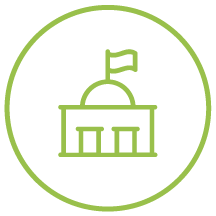
Institutional Arrangements & Coordination
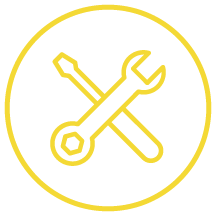
Service Delivery Infrastructure
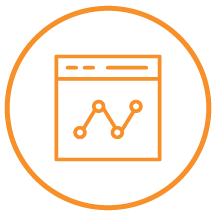
Monitoring

Planning
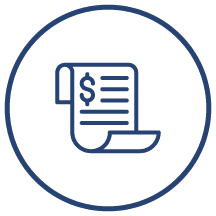
Finance
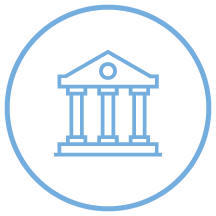
Regulation & Accountability
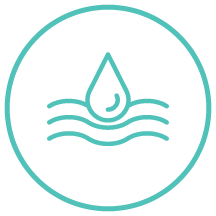
Water Resource Management
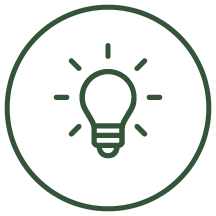
Learning & Adaptation
National
Local
National








